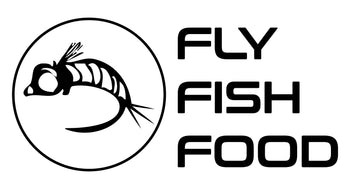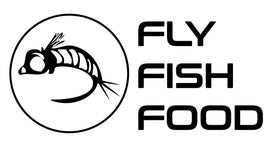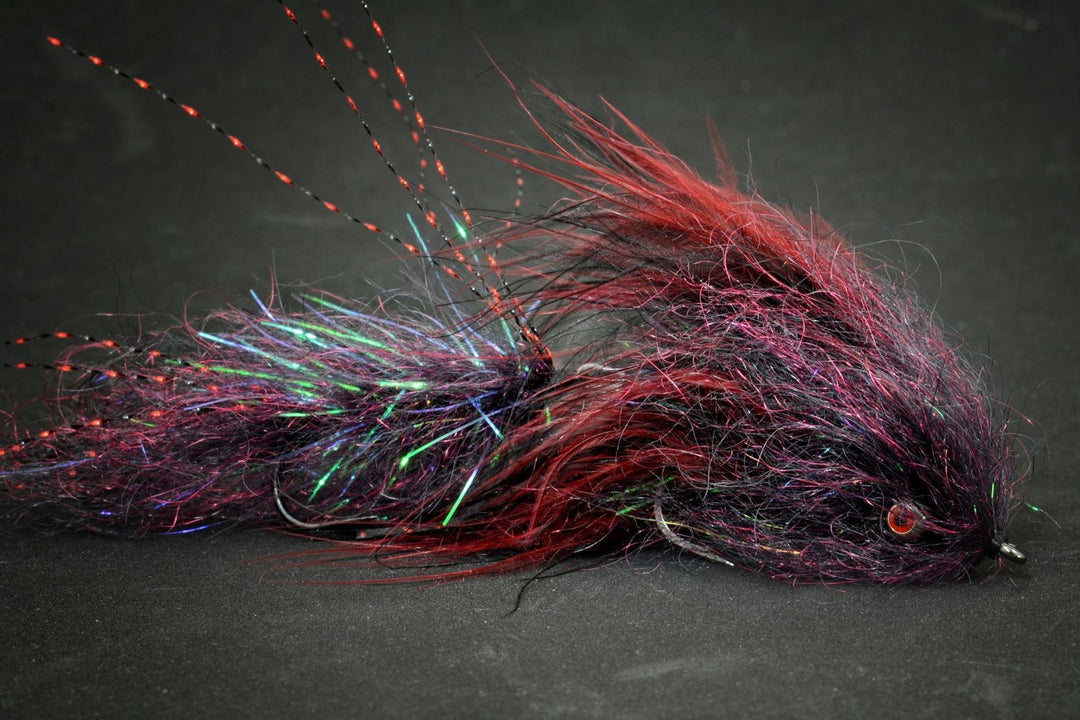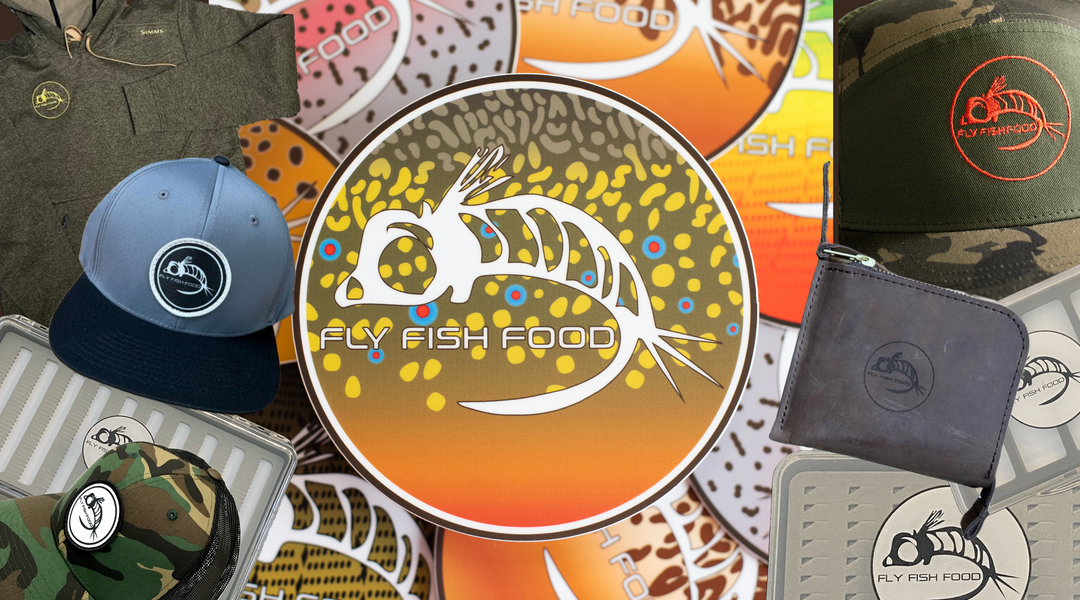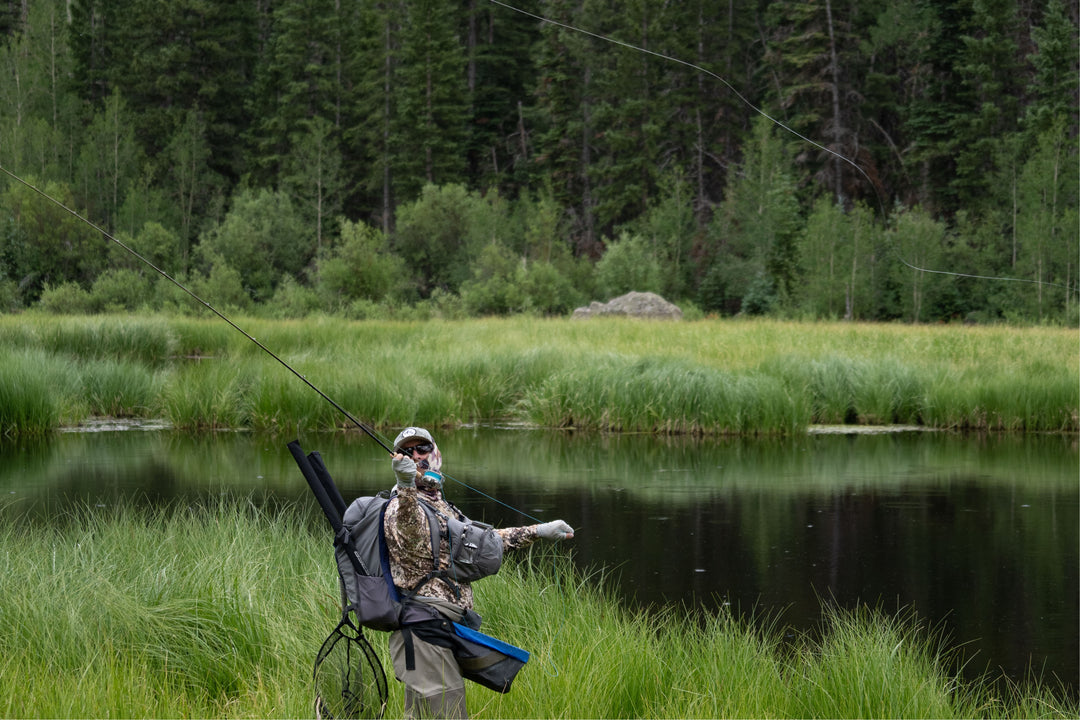Rio Grande Fly Fishing Report - January 1/4/2026
RIO GRANDE (TIERRA DEL FUEGO) FLY FISHING REPORT
Argentina — Sea Trout / Summer Season Conditions
Snapshot — What to Expect Right Now
Current River Conditions
Flow: Variable by reach (lodges reporting stable to slightly rising flows after Andean meltwater).
Clarity: Often clear to slightly tea-stained; visibility varies with wind & run-off.
Typical summer temps: roughly 6–12°C (43–54°F). Cooler pockets in shaded pools — ideal for active sea trout.
Midsummer pattern: long, sunny days with frequent Patagonian wind—plan for brisk gusts that affect presentation and boat control.
Lodges operating regular beats. Road & river access generally good; bring sturdy wading gear and wind layers. Check your lodge report for last-mile conditions.
Biology & Feeding
| Food Source | Notes | Best Approach |
|---|---|---|
| Baitfish / small minnows | Primary attractor for adult sea trout in many pools and runs. | Large articulated and profile streamers on intermediate/sink-tips; aggressive strips. |
| Crustaceans / shrimp-like forage | Important in sluggish edges and tailouts. | Smaller, bulky nymphs and tapered patterns fished near the bottom. |
| Stonefly/large nymphs (where present) | Local stonefly/large-nymph pulses occur in some tributaries. | Heavy nymphs, jig patterns and rubber-legged stonefly imitations on euro or indicator rigs. |
| Surface activity (low-light) | At dawn/dusk fish rise to larger, visible targets and chasing baitfish near the surface. | Large foam-bodied dries and surface streamers where appropriate; but expect subsurface takes. |
Tactics — How I’d Fish the Rio Grande Jan 4, 2026
- Rods: 9–11 ft two-handed rods for open-water mends and long-distance casts; single-hand 8–9 ft for tighter banks.
- Leaders & tippet: 9–15 ft leaders, 10–20 lb fluorocarbon for big streamers; 6–10 lb for lighter nymph presentations.
- Retrieve: methodical — slow strips with pauses for big streamers; short, high-action strips when fish are chasing; slow dead-drift tungsten-nymphs when fish are holding deep.
Prime Beats & When to Fish Them
Prime for large streamers and baitfish patterns; fish move through these in pods.
Work sinking tips and large profile flies; follow the current seams and pocket eddies.
Early morning/late evening: quick sight-fishing opportunities to crashing surface or short-strike takes.
Check for concentration of forage and moving fish—excellent for both streamers and jigged nymphs.
Recommended Flies — Picked for Rio Grande Sea Trout
I selected reliable patterns from proven suppliers that translate well to Rio Grande tactics: big streamers for baitfish / sculpin, robust nymphs & perdigons for deep presentations, balanced leeches and eggs for opportunistic takes, and a few terrestrials/dry options for low-light surface action.
Streamers & Sculpin Profiles (go-to for aggressive sea trout)
| Pattern | Why it works |
|---|---|
| Egan's Poacher - Olive | Compact, high-profile sculpin/baitfish silhouette — fish love the bulk in low-light or deeper water. |
| Egan's Poacher - Black | Dark-profile alternative for stained water and evening feeds — excellent on sink-tips. |
| Coffey's CH Sparkle Minnow Sculpin | Articulated sculpin look with flash — deadly in deeper pools and along structure. |
| Sculpzilla - Olive | Bulky profile sculpin imitation, works well on long retrieves and pauses where trout ambush baitfish. |
Nymphs & Perdigons (deep & technical presentations)
| Pattern | Why it works |
|---|---|
| Roza's World Spain Perdigon (Barbless) | Heavy, tight-profile perdigon — great for euro-style tight-line fishing near the bottom where sea trout pick up pupa/forage. |
| Olsen's Quilldigon - Olive (Barbless) | Slim, dense perdigon for long, stable drifts in faster current troughs. |
| Egan's Warrior Perdigon - Rainbow | Bright-bodied option for triggering aggressive follows and short takes in clear water. |
| Olsen's Lite Brite Perdigon UV Blue (Barbless) | UV sparkle attracts attention in deeper, darker runs — useful on tight-line setups or long sink-tips. |
Leeches / Balanced / Big Soft Patterns (slow, confident presentations)
| Pattern | Why it works |
|---|---|
| Balanced Leech - Black | Balanced profile for suspending in the mid-column — ideal when fish are cruising just off the bottom. |
| Balanced Leech - Bruised | Natural bruised palette that imitates wounded forage — excellent slow-figure-eight retrieves. |
| Balanced Leech - Olive | Olive variation for clearer water; balances well in current seams where trout patrol. |
| TFP Balanced Squirrel Leech - Black | Smaller-profile balanced leech that fishes well on light two-handed setups and stillwater/slow runs. |
Eggs & Attractors (short, explosive strikes — early season and opportunistic fish)
| Pattern | Why it works |
|---|---|
| Slush Egg - Apricot | High-visibility egg pattern — triggers aggressive grabs from opportunistic trout feeding on spawned fish or pelleted forage. |
| Sunny Side Up - Fl. Orange | Attractor / egg hybrid, visible and effective as a dropper off a heavier streamer or nymph rig. |
| EZ Egg FL. Sunburst (barbless) | Soft, rounded egg profile that fishes well on droppers and slow-sink presentations. |
| Crostons Tungsten Mini Egg - Baby Pink (barbless) | Tungsten core for fast reach to bottom — useful where fish take eggs at depth in pockets. |
Dry Flies & Terrestrials (useful in low light or shallow edges)
| Pattern | Why it works |
|---|---|
| Bionic Ant 2.0 - Black | Great for foam-line sip takes when insects blow onto the water; excellent as a hopper-dropper partner. |
| Bionic Hopper - Tan | Bulky hopper silhouette for evening surface aggression or as a visual indicator over a dropper. |
| Chubby Chernobyl - Purple | Floating, visible attractor that fishes well in foam lines and seams when trout are in a chase mood. |
| Chubby Chernobyl - Olive | More natural tone for selective fish in calm, shallow water during low-light periods. |
Quick-Reference Rigging Guide
Floating or short intermediate head & long sink-tip (4–10 m). Strong butt sections, 10–20 lb fluorocarbon leader for big fish.
Euro or indicator: short, dense perdigons on 0X–3X hooks. Tungsten jigs for quick bottom contact. 6–8 ft tippet off leader.
Balanced rigs or slow-sinking tips; fish in mid-column with occasional pulses and pauses.
Hopper-dropper rigs with a dry as indicator (6–9 ft between), shorter leaders for quicker hookup.
Safety, Permits & Local Notes
- Weather & Wind: Dress in layers; Patagonia wind can change quickly. Secure boats and gear accordingly.
- Conservation: Practice careful handling — sea trout are prized and many lodges operate strict catch rules. Use barbless or crushed-barb hooks where required.
Final Tips from the Drift
On a Rio Grande January day I start with streamers on a sinking tip at first light, then run methodical, long-strip presentations through deep seams. Mid-morning I'll switch to heavy per-digon or jig-nymphs if the fish are holding on the bottom. Late afternoon and evening, slow balanced leeches and a well-placed egg pattern often trigger the biggest, shortest eats. Keep retrieves deliberate, watch the water for moving bait, and be ready to adapt — the river rewards anglers who read current and forage, then present with conviction.
